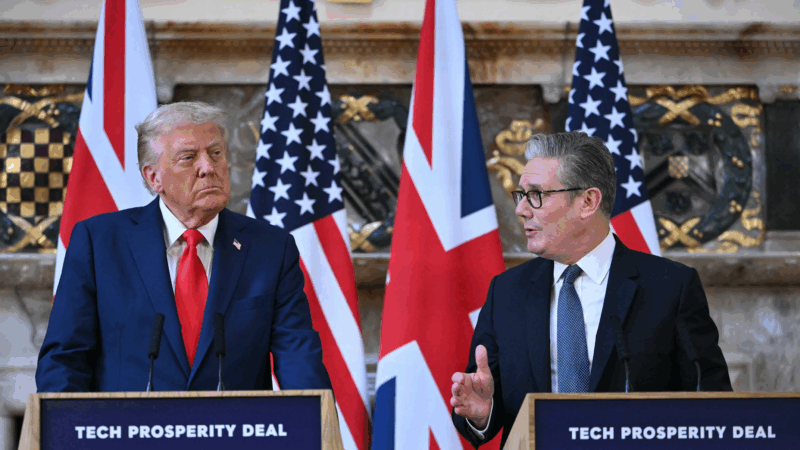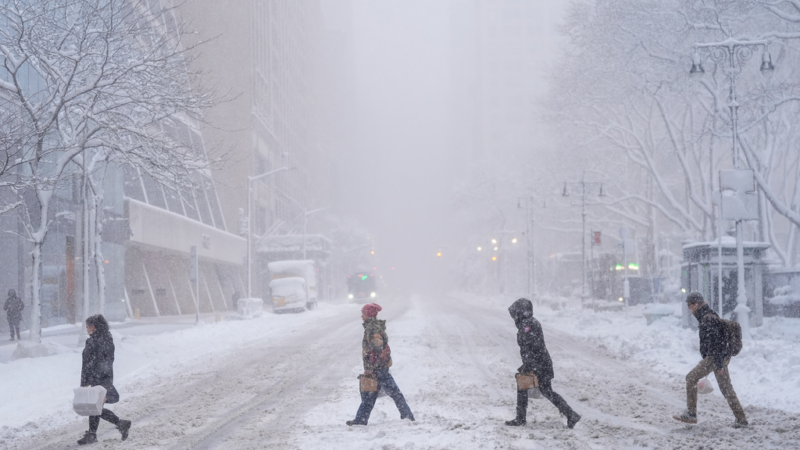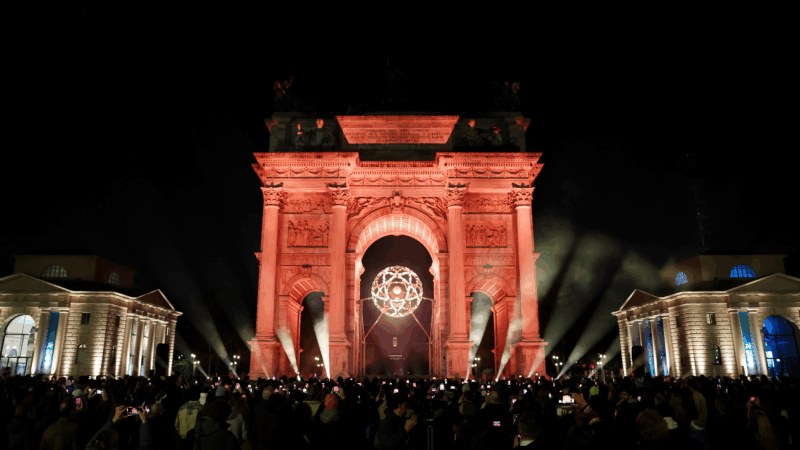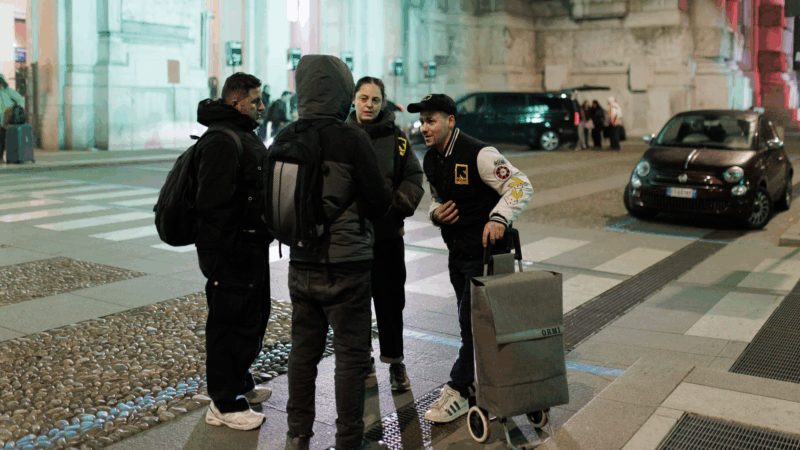Trump says he disagrees with Starmer’s decision to recognize Palestinian state
President Trump said he disagrees with British Prime Minister Keir Starmer’s decision to recognize the Palestinian state sometime this month unless Israel commits to peace in Gaza.
Trump, speaking at a press conference with Starmer on Thursday, said he wants the immediate release of hostages. The disagreement with Starmer’s approach, Trump said, is “one of our few disagreements.”
Asked why he had not recognized Palestinian statehood ahead of Trump’s visit this week, Starmer said the timing of his announcement “has got nothing to do with this state visit” and said that Hamas could not have a role in the future governance there because of the Oct. 7 attacks it led on Israel.
Trump was asked why he didn’t use his power to persuade Israeli Prime Minister Netanyahu to stop military actions in Gaza killing civilians. Trump said: “I want it to end, but I want the hostages back. I don’t want the hostages used as human shields, which is what Hamas is threatening to do.”
The leaders also discussed Russia’s war on Ukraine
Starmer, who is leading European efforts to support Ukraine, said the West needs to do more to pressure Russia to end its war.
“In recent days, Putin has shown his true face mounting the biggest attack since the invasion began, with yet more bloodshed, yet more innocents killed, and unprecedented violations of NATO airspace,” Starmer said.
“These are not the actions of someone who wants peace. So we’ve discussed today how we can build our defenses to further support Ukraine and decisively increase the pressure on Putin to get him to agree a peace deal that will last,” Starmer said.
It’s been a month since Trump hosted Russian President Vladimir Putin for talks in Alaska — a meeting he said would lead to talks between Putin and Ukrainian President Volodmyr Zelenskyy. But that meeting has not transpired, and Russian strikes on Ukraine have intensified.
Ahead of the trip, Trump conditioned new sanctions on Russia on NATO members cutting off energy purchases from Russia and applying massive tariffs on imports of Chinese goods.
Trump, in his opening remarks, expressed frustration with Putin, saying he had expected to have an easier time brokering an end to the war because of his good relationship with the Russian president. “He’s let me down. He’s really let me down,” Trump said.
Asked about his next steps on Russia, said the lack of progress was “my biggest disappointment.” He said the war “doesn’t affect the United States” and noted Starmer was “a lot closer to the scene than we are.”
Starmer said recent Russian strikes and the recent drone incursion show the need for more pressure on Putin. “It’s only when the president [Trump] has put pressure on Putin that he’s actually shown any inclination to move. So we have to ramp that pressure up,” Starmer said.
“What you can see is either an emboldenment or at least an increased recklessness on Putin’s part, and that’s why I said earlier that they’re not the actions of someone who wants peace, so we have to ramp up,” Starmer said. He said the U.K. and French governments were stepping up military planning and suggested “an American guarantee” was also needed.
In the course of his remarks, Trump also said that the United States was trying to regain possession of the Bagram Air Base north of Kabul in Afghanistan. “We want that base back,” he said. He did not elaborate on the idea.
The press conference caps Trump’s state visit to the United Kingdom where the British government sought to leverage his love of the monarchy to work with Trump on trade and national security goals.
After an opulent banquet at Windsor Castle with the royal family on Wednesday, Trump traveled to Chequers, the prime minister’s country estate, where he met with top business leaders from both countries as well as Starmer.
At Chequers on Thursday, Trump and Starmer signed an agreement to work on expanding cooperation on technology and nuclear energy. Trump said the agreement on expanding nuclear energy would help expand AI because of that industry’s need for electricity.
Kate Hudson on regret, rom-coms and finding a role that hits all the notes
Hudson always wanted to sing, but feared it would derail her acting career. Now she's up for an Oscar for her portrayal of a hairdresser who performs in a Neil Diamond tribute band in Song Sung Blue.
A powerful winter storm is roiling travel across the northeastern U.S.
Forecasters called travel conditions "extremely treacherous" and "nearly impossible" in areas hit hardest by the storm, and air and train traffic is at a standstill in many parts of the region.
U.K. arrests ex-ambassador to the U.S. on suspicion of misconduct over Epstein ties
Police have arrested Peter Mandelson, a veteran Labour Party politician who served as British ambassador to the U.S., as part of an investigation into his ties with Jeffrey Epstein.
What NPR reporters will remember most about these Winter Olympics
NPR's reporters on the ground in Italy reflect on a far-flung, jam-packed Winter Olympics.
In the shadow of the Olympics, migrants search for a welcome in Milan
As Italy cracks down on migration, Milan takes a different path — offering shelter and integration to asylum seekers even as the central government tightens borders and funds deterrence abroad.
Trump to raise global tariffs. And, most say the state of the union is weak, poll says
President Trump says he is raising global tariffs to 15%. And ahead of the president's address tomorrow, most Americans say the state of the union is not strong, according to an NPR poll.







